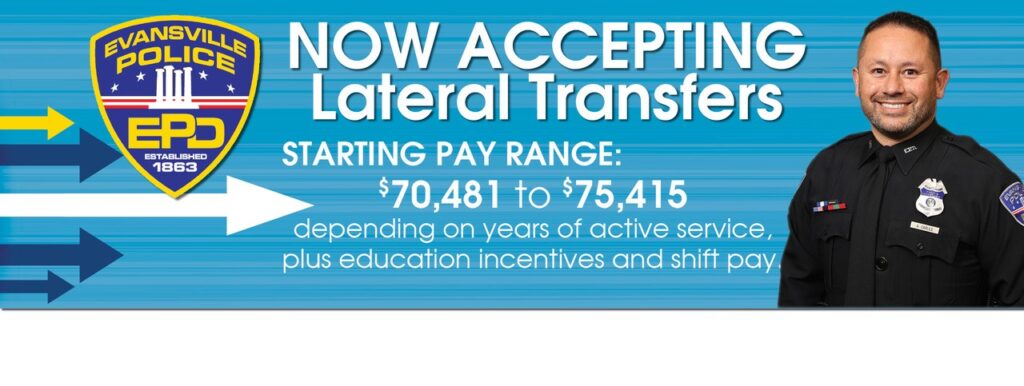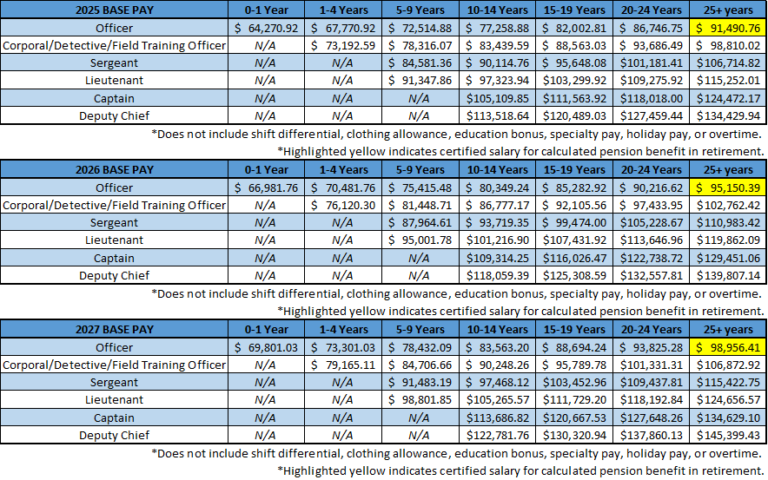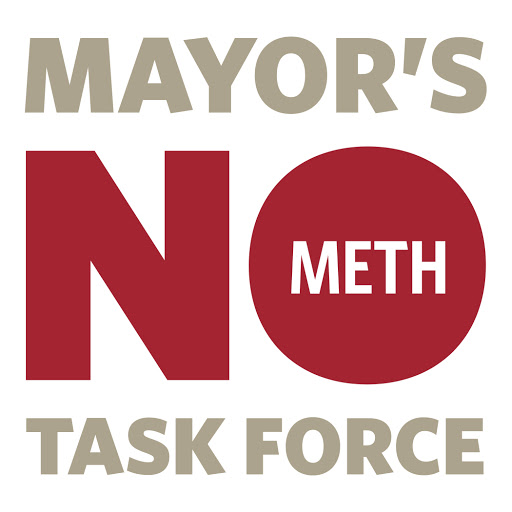- 15 NW Martin Luther King Jr. BLVD Evansville, IN 47708
- info@evansvillepolice.com

Benefits

2026 SALARY AND BENEFIT INFORMATION
Salary: All Probationary Officers start at $66,981.76 per year and receive full pay while attending the 18-week basic session at the Southwest Indiana Law Enforcement Academy. After completion of the one-year probationary period, the base pay increases by $3,500.00 to $70,481.76. Additional salary will be awarded through our Educational Bonuses (degree from accredited colleges in an approved field of study).
-
- Associate degree – $623.65 per year
- Baccalaureate degree – $1,247.31 per year
- Master’s degree – $1,870.98 per year
- Doctorate – $2,469.93 per year
Shift Differential: 2nd Shift Differential: $2,466.86 and 3rd Shift Differential: $3,524.09.
Overtime: Overtime earned will be reimbursed to the police officer either in money or compensatory time off from duty at the rate of one and one-half (1 1/2) times the actual overtime earned by the officer. Officers called in from authorized off-duty status will receive at least four (4) hours overtime. Certain qualified types of overtime will pay at “double time” (two times the actual overtime earned).
Vacations: Employees shall be entitled to paid vacation as follows:
One (1) year but less than five (5) years – 2 weeks paid vacation
Five (5) years but less than ten (10) years – 3 weeks paid vacation
Ten (10) years but less than fifteen (15) years – 4 weeks paid vacation
Fifteen (15) years but less than twenty (20) years – 5 weeks paid vacation
Twenty (20) years and more – 6 weeks paid vacation
Family Leave: All officers receive an additional 80 hours of family time off annually.
Sick Leave: Presently there is no set number of sick days.
Rank Differential: There is an eight percent (8%) increase in pay between rank classifications (Officer, Corporal, Sergeant, Lieutenant, Captain, and Deputy Chief).
Detective/FTO Differential: Officers assigned to the Criminal Investigation Division or Field Training Unit shall have their salary upgraded to that of a corporal’s salary (8%) that coincides with their years of service longevity. Detectives and Field Training Officers assigned to 2nd or 3rd shift also receive shift differential.
Insurance: A number of different insurance plans covering hospitalization, dental and visual are available through the City of Evansville. Group term life insurance coverage ($75,000/$75,000-double indemnity), is provided by the City at the cost of one dollar ($1.00) per month to the employees and the City pays the balance of the premium. Officers also have access to a free, on-site health clinic. Insurance is available to retirees upon retirement at competitive premium rates.
Tuition Reimbursement: Eligible personnel will be reimbursed subject to appropriation upon completion, a maximum of two classes per semester. Tuition paid by an officer will be reimbursed upon proof of satisfactorily completing the courses toward the required major with a “C” or better grade as follows: 100% for the grade of “A”; 90% for the grade of “B”; or 80% for the grade of “C”.
Clothing Allowance: When a new officer is hired, the City will furnish the officer with a complete clothing issue and all equipment necessary to perform the job. After the completion of one year’s service, the officer shall be entitled to a clothing allowance for the maintenance and replacement of uniform and equipment. This allowance is paid in two equal installments of $800.00 in February and July of each year.
Pension: Any full-time police officer hired after May 1, 1977, must participate in the Public Employee’s Retirement Fund created in 1977 and administered by the State of Indiana. Each employee must contribute 6% of a first-class patrolman’s salary. If the officer terminates prior to twenty (20) years of service, except for death or disability, contributions plus interest will be refunded. Beside the officers contribution, the City of Evansville must also make contributions equal to 21% of a first-class patrolman’s salary. Members of the 1977 fund are eligible for retirement with twenty (20) years of service, however, benefits cannot be initiated until age 52. The annual retirement benefit with twenty (20) years of service is 52% of a first-class patrolman’s salary in the year the member ended his active service. If the officer has more than twenty (20) years of service, he receives an additional 1% for every six (6) months in excess of twenty (20) years to a maximum of 76%.
Additional Benefits:
-
- All uniforms and equipment furnished first year
- Employee Assistance and Officer Wellness programs
- Compensatory time off accrual
- On-Duty paid meal/workout break
- 17 paid holidays, including the Officer’s birthday
- Approved first-year training program for those veterans with GI Bill education benefits.





